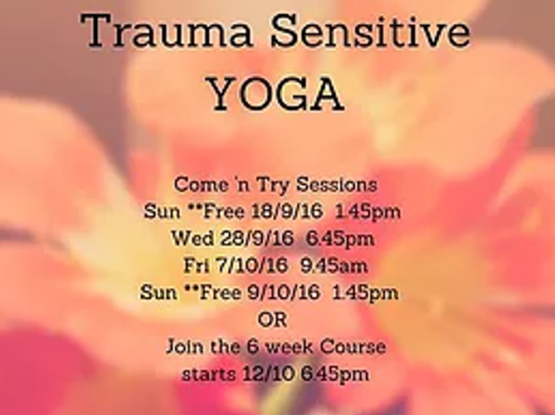Questions to ask if you are concerned about someone in your community.
This article has ideas, questions and strategies to make it easier to offer help to someone that you are feeling concerned about. In these times we all know someone who has been impacted by suicide. It is my hope that you will find a few useful ideas here, for when you want to assist and support someone who is suffering.
At the end of this article is a selection of links to access support if you need it now and excellent information and resources.
You First
Before you make contact with the person, check in with yourself:
- Am I feeling relaxed and settled?
- Can I set aside some uninterrupted time?
- Turn your phone off
- Maybe a beverage available, water, tea, or a nearby café
- Consider how you might provide privacy
Are They Ready?
Of course, just because you are ready there’s no guarantee they’ll be ready to talk. However, you are showing them that you care. It’s quite likely that next time you ask they might be ready.
If they don’t want to talk let them know you’ll always be able to make time for them. You could also ask if there’s someone else they’d be more comfortable chatting with.
Find a Moment
Meaningful moments talking about life’s challenges are more likely to happen when we’re spending time together, doing things.
You could get into the habit of creating more moments to be asking:
“Are you okay?”
“How can I help?”
How are you really?
 Consider all the opportunities that are possible check in moments
Consider all the opportunities that are possible check in moments
- Out walking,
- At the beach or park
- Exercising at the gym
- At social events
- When you’re doing a physical activity side-by-side
- When you’re sharing a meal
- When you’re in the car or public transport together
- On a trip away
- On breaks from work or study
- When you find yourself in a space together
Take it Slow
Pausing is helpful, for both of you. Pause and wait. Set the pace, allow yourself to slow down. Don’t rush or interrupt. Let them speak in their own time. Stay curious by encouraging them to explain. Be open to listen. You don’t need to solve their problems or offer suggestions. In fact, it’s so much better when we find our own solutions.
You might ask:
Have you felt this way before – what was helpful last time?
Don’t assume that if something is helpful for you it will be helpful for them. Once again be curious and encourage them to help you understand their situation.
Questioning?
Don’t ask too many questions, someone with a mental health issue doesn’t want to feel like they’re being interrogated.
Is there anything you want to talk about?
It may be easier for them to talk about a more tangible topic like sleep deprivation or loss of weight. Sleep and appetite are often impacted by mental health. You might ask with kindness:
Have been eating sleeping okay? How’s your stress level lately?
Many people are nervous, or uncomfortable talking about their emotions.
Offer Help
You might offer to do something for them. Don’t be surprised if they aren’t sure what you could do for them. Sometimes it’s hard to recognise where we need help, or how someone may be able to assist. Whilst you are actively listening you may discover an unmet basic need or something practical that you could do.
If you see something that might be helpful, make a specific offer like, “Can I help you get the dishes done?”
Perhaps offer to do a task for them, or go with them to get it done
- Wash up the dishes
- Wash their car
- Walk the dog
- Pick up groceries
- Arrange a massage
- Lend them your spare guitar
- Drop over a meal
- Fetch a coffee
A gesture like this can go a long way in showing your friend that you really do appreciate and care about them.
Explain Your Concern
You might let them know why you are feeling concerned, what you have noticed, for example:
“I haven’t seen you down in the staff room lately, at the club, in the zoom catch ups, heard you talk about visiting your parents lately”
You might like to reference a past event:
How are you since your injury, illness, hospital visit, your grandmother’s funeral etc?
Maintain Contact
Make occasional or regular text messages or phone calls, find out what might suit them best:
I was thinking about you…
Lock in a regular catch up and one-on-one time. Ask them about activities they like to do and help them make plans to do them or offer to do them together. Arrange group catch-ups to help them connect with others.
Trust your Gut Feeling
If you think someone is having thoughts of suicide, don’t be afraid to be direct and ask them – asking the question does not lead to suicide.
Crisis helplines are there for you too.
If you are finding the conversation difficult, call Lifeline on 13 11 14 or
Suicide Call Back Service on 1300 659 467 who will provide immediate support and advice.
StandBy is Australia’s leading suicide postvention program dedicated to assisting people and communities bereaved or impacted by suicide, call 1300 727 247
https://standbysupport.com.au/
Roses in the Ocean aims to save lives and reduce emotional distress and pain by innovating and transforming suicide prevention; driving and delivering system reform through the expertise of people with lived experience of suicide.
https://rosesintheocean.com.au/
You can find a comprehensive list of support services on this webpage:
https://rosesintheocean.com.au/need-help-now/
By Jane Macnaught
Subscribe For More
 Jane Macnaught
Jane Macnaught
E: counsellor@tranquilloplace.com M: +61 425 152 490
Learn More About Jane
Tranquillo Place: Counselling | Mediation | Relationships
We offer private services in our beautiful tranquil room in Mona Vale, Northern Beaches Sydney and online using secure, encrypted Zoom.
Specialists in trauma, anxiety, grief & loss, communication, intimate relationships, compassionate mediation, couples coaching, online courses & training, workshops, and trauma informed practitioner support group.
Talk to us. We would like to hear what’s happening in your life and help you find the right support.
Book a Free Session



